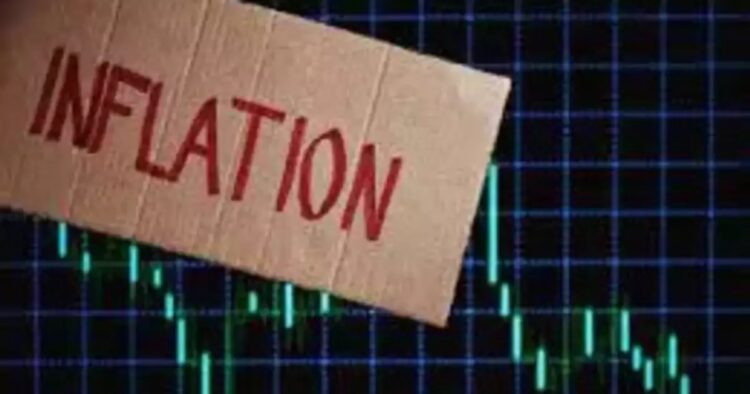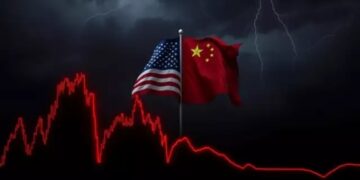In Bharat, the Consumer Price Index (CPI), a key measure of inflation, remained unchanged between January and February, signaling stability in the economy. The headline retail inflation for February stood at 5.09%, just marginally lower than January’s 5.1%. With the recent reduction of ₹100 in LPG cylinder prices, expected to reflect in March’s inflation figures, the CPI is anticipated to align closely with the Reserve Bank of India’s (RBI) forecast of 5% for the quarter ending March 2024. Analysts had anticipated this figure, with a Bloomberg poll projecting a 5.05% inflation rate.
Despite the CPI still hovering above the RBI’s target of 4%, core inflation, which excludes food and fuel prices, saw a decline to 3.37%. This marks the lowest core inflation level since November 2019, indicating that the Bharatiya economy is not experiencing overheating.
However, food inflation witnessed a slight uptick from 8.3% in January to 8.6% in February. This increase was primarily driven by significant price rises in categories such as eggs, fish, and meat, with inflation soaring from 1.6% in January to 5.7% in February. Additionally, vegetable inflation also surged from 27.1% in January to 30.3% in February.
While inflation for cereals and pulses saw a marginal decline from January levels, future inflation outlook depends on the winter crop harvest. Reports suggest that recent rains in parts of north and north-west Bharat may have caused some crop damage, which could influence prices in the coming months.
In another economic indicator, the Index of Industrial Production (IIP) for January fell slightly below analyst expectations. With a growth rate of 3.8%, it was 30 basis points lower than forecasted and lower than December 2023’s 4.25%. Manufacturing, which holds significant weight in the IIP basket, grew at 3.2% in January compared to 4.5% in December 2023. However, caution is advised in interpreting this as a substantial decline in economic momentum, as the Purchasing Managers’ Index (PMI) for manufacturing indicates an increase in economic activity in January and February compared to the previous month.
Rahul Bajoria, Managing Director and Head of EM Asia (ex-China) Economics at Barclays, suggested that stable CPI inflation coupled with slowing core and fuel inflation may prompt the RBI to consider policy easing from the third quarter of 2024. With benign core inflation and robust growth, the central bank may find comfort in adjusting its policies accordingly.

















Comments